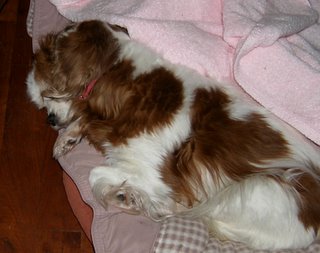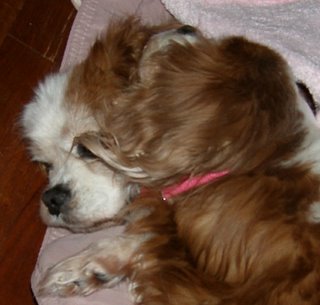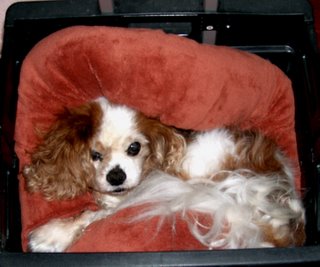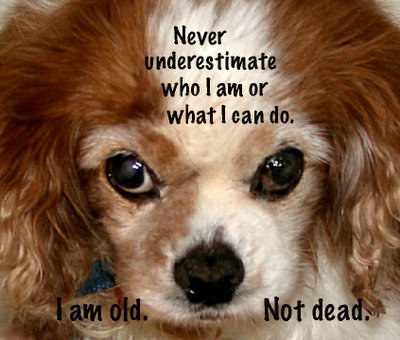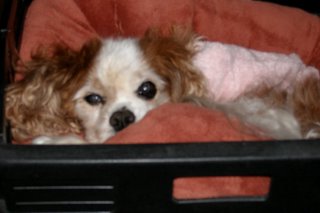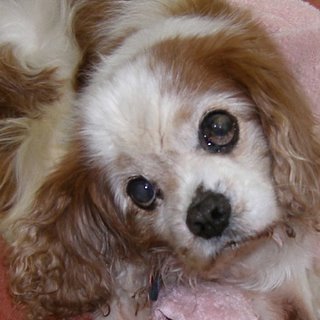With a sound like Niagara Falls...
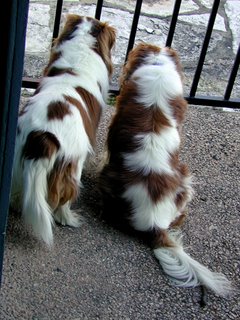 ...Cooper's heart beats under my hand. For the first time, I can almost hear it. The beat is fast and hard. I hold him close. Gradually it slows and I wonder, "Is this it?"
...Cooper's heart beats under my hand. For the first time, I can almost hear it. The beat is fast and hard. I hold him close. Gradually it slows and I wonder, "Is this it?"There are so many times like this, so many times I wonder whether we're doing him any favors keeping him alive like this, on heart medications identical to those my beloved hubby takes. But my husband's heart doesn't rumble beneath my hand; nor does his physician put down his stethescope and say, "I almost don't need this." Our vet's trained ear can practically hear my dog's heart beating without benefit of instrumentation.
This picture shows Tessie and Cooper just a year or so ago, when Cooper weighed nearly 20 pounds. Back in September, he weighed 16.5 pounds. A week or two ago, 14.5 pounds. He's lost a quarter of his body weight in about a year. Yet his appetite remains strong, and when he's not sleeping (which is most of the time) he seems happy to be alive. So we've asked our sewing friend to trim his diapers back and make us some smaller ones...two dozen this time, since the Lasix seems to be working like gangbusters. That broad back you see in this picture isn't broad any more, but only about four to five inches at its narrowest. In a way that's good, because there's less pressure on his hips and he's much easier to carry -- and he needs to be carried a lot lately.





